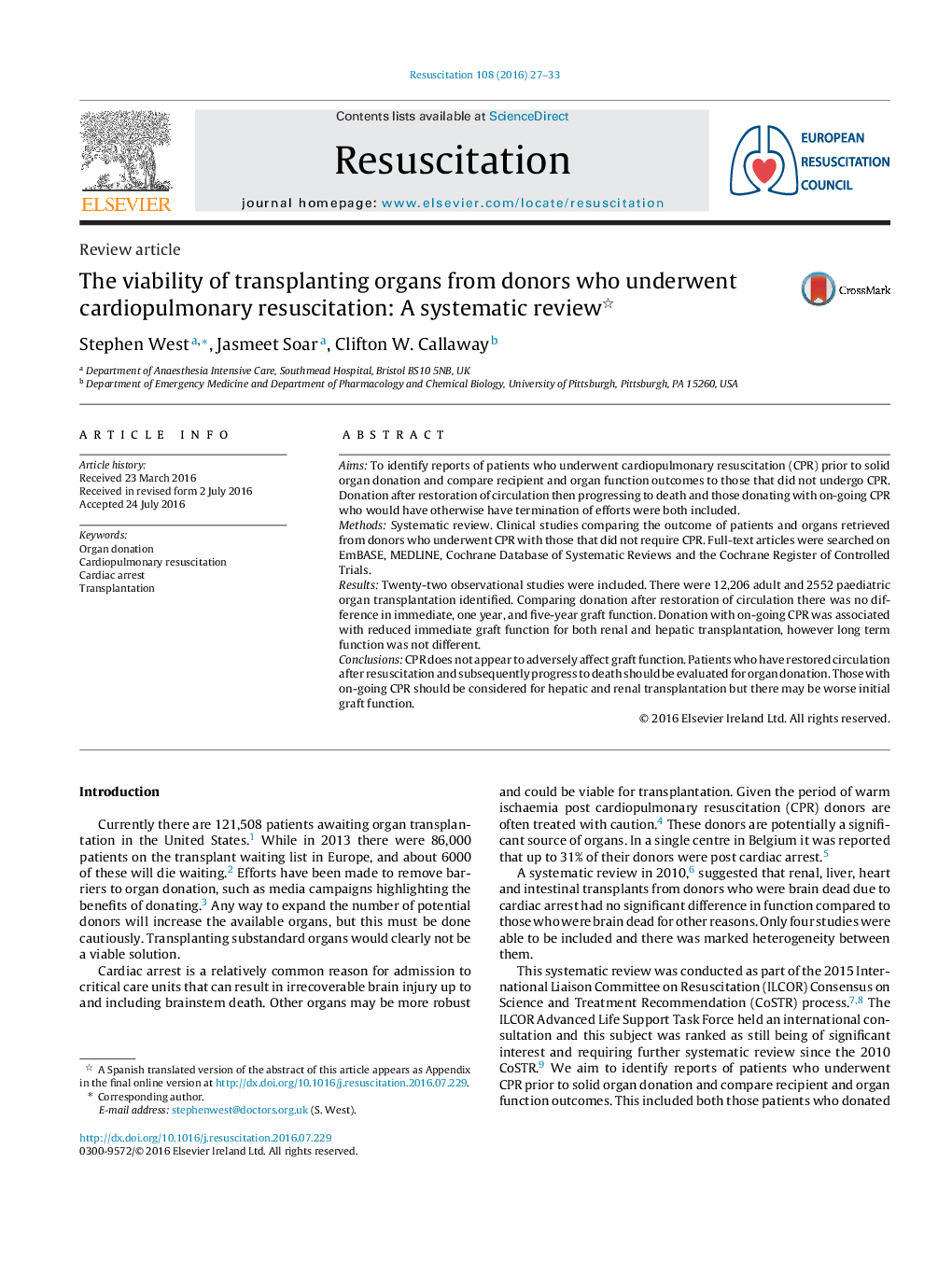| Article ID | Journal | Published Year | Pages | File Type |
|---|---|---|---|---|
| 3007618 | Resuscitation | 2016 | 7 Pages |
AimsTo identify reports of patients who underwent cardiopulmonary resuscitation (CPR) prior to solid organ donation and compare recipient and organ function outcomes to those that did not undergo CPR. Donation after restoration of circulation then progressing to death and those donating with on-going CPR who would have otherwise have termination of efforts were both included.MethodsSystematic review. Clinical studies comparing the outcome of patients and organs retrieved from donors who underwent CPR with those that did not require CPR. Full-text articles were searched on EmBASE, MEDLINE, Cochrane Database of Systematic Reviews and the Cochrane Register of Controlled Trials.ResultsTwenty-two observational studies were included. There were 12,206 adult and 2552 paediatric organ transplantation identified. Comparing donation after restoration of circulation there was no difference in immediate, one year, and five-year graft function. Donation with on-going CPR was associated with reduced immediate graft function for both renal and hepatic transplantation, however long term function was not different.ConclusionsCPR does not appear to adversely affect graft function. Patients who have restored circulation after resuscitation and subsequently progress to death should be evaluated for organ donation. Those with on-going CPR should be considered for hepatic and renal transplantation but there may be worse initial graft function.
